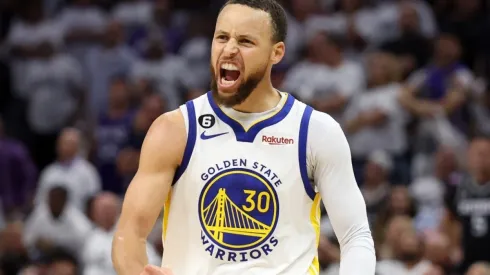The NBA regular season can tell a lot about a team, but the playoffs can always prove that wrong. If not, look at the Golden State Warriors, who have taken down the Sacramento Kings despite their inconsistency throughout the year.
With an inspired Stephen Curry in Game 7, the Dubs beat the #3 seed in the West to set up a highly-anticipated meeting with LeBron James and the Los Angeles Lakers in the Conference semifinals.
Steph played with achip on his shoulder to keep his team alive, puting up 50 points – an NBA record for a Game 7 in the playoffs. But the two-time MVP may have started to win the game before the tip-off, as he reportedly made something clear for his unhappy teammates.
Stephen Curry reportedly warned unhappy teammates before Warriors’ win in Game 7
(Via The Athletic)
“According to multiple sources in the private session, Curry told the team he believed in them, that they had enough to win. He asked for their trust in return. He assured them he could deliver victory if they all bought in.
He implored them to put all of their feelings aside — which sources with knowledge of the locker room felt was messaging directed at Poole, Jonathan Kuminga, and other guys who might’ve been unhappy for reasons such as playing time and role — and lock into the unified mission. Anyone who wanted to remain in their emotions, he told them to stay home. Anyone who was ready for their vacation, he told them not to get on the bus for Sacramento.
But anyone who did get on the bus, Curry took that as a signature of approval, a binding agreement to be on board with the mission. And if they did that, if they got on the bus, he promised he’d deliver. With his game, his faith, their solidarity, they’d win.”
Jordan Poole, Jonathan Kuminga and other players have reportedly been frustrated with their lack of playing time in the playoffs. As the team leader, Curry has to make sure the atmosphere in the locker room is positive and to have everyone pushing together for the same goal.
If he took care of the situation before the crucial match, it speaks highly of him as a leader. One can understand the young players want to contribute, but the coach makes the decisions and everyone has to accept that. When you’re part of a team, you have to think collectively. And when you’re a leader, to try and have everyone on board.
